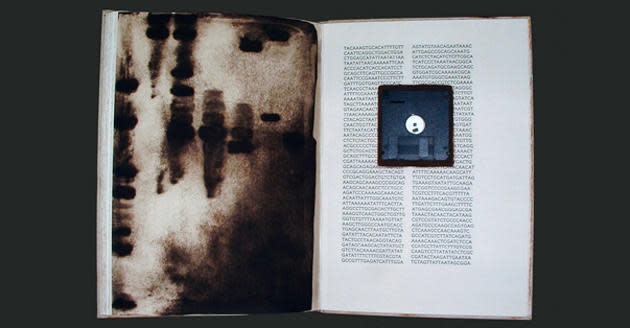 Today in Tech
Today in TechResearcher seeks solution to mystery of 20-year-old self-deleting poem

In 1992, renowned sci-fi author and futurist William Gibson (Neuromancer, Virtual Light) released Agrippa (A Book of the Dead), a self-playing poem contained on a floppy disk for old Macintosh computers that, once its text had scrolled up the screen one time, would be rendered unreadable on purpose. Now, 20 years later, a PhD student at the University of Toronto is enlisting the aid of cryptographers in hopes of figuring out how the program works.
Quinn DuPont, a student of cryptography, has created what he's calling Cracking the Agrippa Code: The Challenge, which asks participants to explain how the intentional scrambling of the poem works in exchange for prizes. The first person who successfully cracks the code will win a copy of every William Gibson work ever published — except for Agrippa — along with DuPont's unending gratitude, we suppose.
Part of the challenge will entail decrypting the actual program, the uncompiled source code for which has been long lost. Then, cryptoanalysts will need to figure out how it encrypts the poem — if that's actually what's happening. DuPont admits that the program could just be randomly scrambling the text, in which case there may not be a way to decode it.
If you're interested in reading an unscrambled version of Gibson's Agrippa, you can actually do so on the author's own website. To aid brave cryptography buffs in decoding the program, DuPont has made links available to a copy of the original, along with the Macintosh System 7 emulator required to run it and other tools, on a web page dedicated to the project.
[Image credit: Kevin Begos Jr.]
[via Ars Technica]
This article was written by Randy Nelson and originally appeared on Tecca
More from Tecca:
